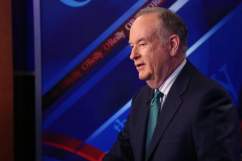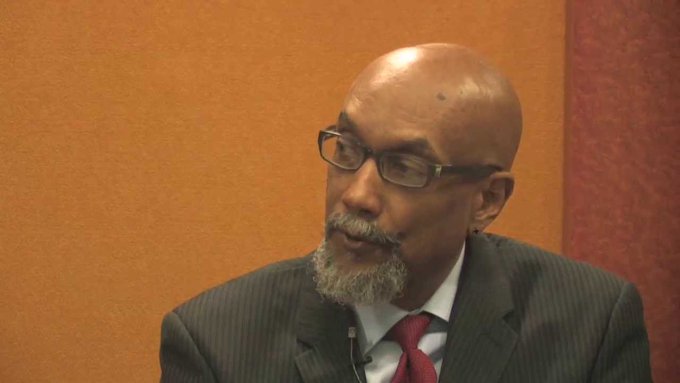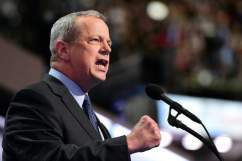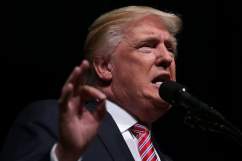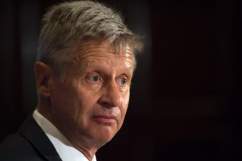Ajamu Baraka is the 2016 Green Party’s candidate for vice president. He is atop the Green Party ticket with its presidential candidate, Jill Stein.
A founding member of the U.S. Human Rights Network and an associate fellow at the Institute for Policy Studies, Barka has written articles addressing race, war, democracy and humanitarian crises. Baraka has served on the boards of humanitarian organizations and has labeled President Barack Obama an “uncle tom.”
The Green Party in an independent, third party alternative to the Republican and Democratic parties focused on “American social movements, and is part of a global Green movement that shares key values, including our Four Pillars: Peace and Non-Violence, Ecological Wisdom, Grassroots Democracy, and Social Justice,” according to its website.
CNN will host a town hall with Stein and Baraka on Aug. 17 at 9 p.m. ET. The cable network had ratings success with Libertarian Party candidates Gary Johnson and Bill Weld.
Here is what you need to know about Baraka:
1. Baraka Is ‘Rooted’ in the Black Liberation Movement & Central American ‘Solidarity Struggles’
Baraka is a self-described “human rights defender whose experience spans four decades of domestic and international education and activism.” His “roots” are in the Black Liberation Movement and “anti-apartheid and Central American solidarity struggles.” Some of these views are revealed in his writings.
Baraka wrote in the Black Agenda Report that the “Kingification” of Muhammad Ali and the government pursuing the death penalty of Dylan Roof were “intertwined.”
These two events demonstrate that nothing is innocent; including the death of a cultural icon like Muhammad Ali or an announcement that justice would be done by pursuing capital punishment. Like the civil rights, women’s and even the anti-war movement, the state attempts to de-politicize and co-opt movements and individuals by reinscribing the meanings of nominally oppositional social movements and individuals and re-incorporating them into the grand narrative of “America’s” striving for a more “perfect union.”
2.Baraka Wants to Abolish the Death Penalty
Baraka was named the “Abolitionist of the Year” in 2001 by the National Coalition to Abolish the Death Penalty, according to his bio. He worked with Amnesty International to battle the death penalty.
In 2001, he wrote a column calling it a “cruel, outdated” measure of justice — “including in the case of Timothy McVeigh.”
“McVeigh’s position seems to be that violence is justified for a principle. Isn’t that exactly what we will be saying when we execute him? Aren’t we better than that?,” we wrote.
3. Jesse Jackson Is a ‘Sell out,’ Barack Obama an ‘Uncle Tom’ & Democrat Party ‘a Myth
In 2013, while some were celebrating Dr. Martin Luther King Jr.’s March on Washington, Baraka was declaring what he believes King was actually talking about. This includes a blog post entitled, “Martin Luther King: ‘My Dream is Not Obama.'”
“Your uncle tom president says that there is no excuse for violence — when it comes to the oppressed. For the empire, violence is the first weapon of choice from Libya to Syria and the police forces in Ferguson,” Baraka said, according to Telesur.
Regarding Jesse Jackson, Baraka pointed to the 1988 Democratic National Convention when Jackson was “selling out” to the Dems:
4. He Has Regularly Spoken out Against ‘U.S. Imperialism’
Calling Bernie Sanders’ campaign “an ideological prop — albeit from a center/left position — of the logic and interests of the capitalist-imperialist settler state,” Baraka denounced the ongoing Yemeni war and the U.S. involvement there.
It is one of many comments Baraka has made regarding imperialism. He wrote in 2012 how Black working class folks move from anti-war to anti-imperialism. “The militarism of neo-liberalism has created irreconcilable ideological contradictions for the Western, white, male, capitalist, minority ruling class,” he wrote in Pambazuka.
Humanitarian intervention nothing more than “a convenient cover for rationalizing and justifying continued Euro-American global hegemony through the use of armed interventions to refashion local realities in line with Western geopolitical interests,” he wrote in the Black Agenda Report in 2013.
5. Jill Stein Called Him a ‘Powerful Voice,’ With Commitment to ‘True Revolution’
Baraka is “a powerful voice, vision, and lifelong commitment to building true political revolution,” Stein said in her announcement selecting him as vice presidential candidate.
“Ajamu Baraka is a powerful, eloquent spokesperson for the transformative, radical agenda whose time has come – an agenda of economic, social, racial, gender, climate, indigenous and immigrant justice. Ajamu’s life’s work has embodied the immortal words of Dr. Martin Luther King: Injustice anywhere is a threat to justice everywhere,” she said.

